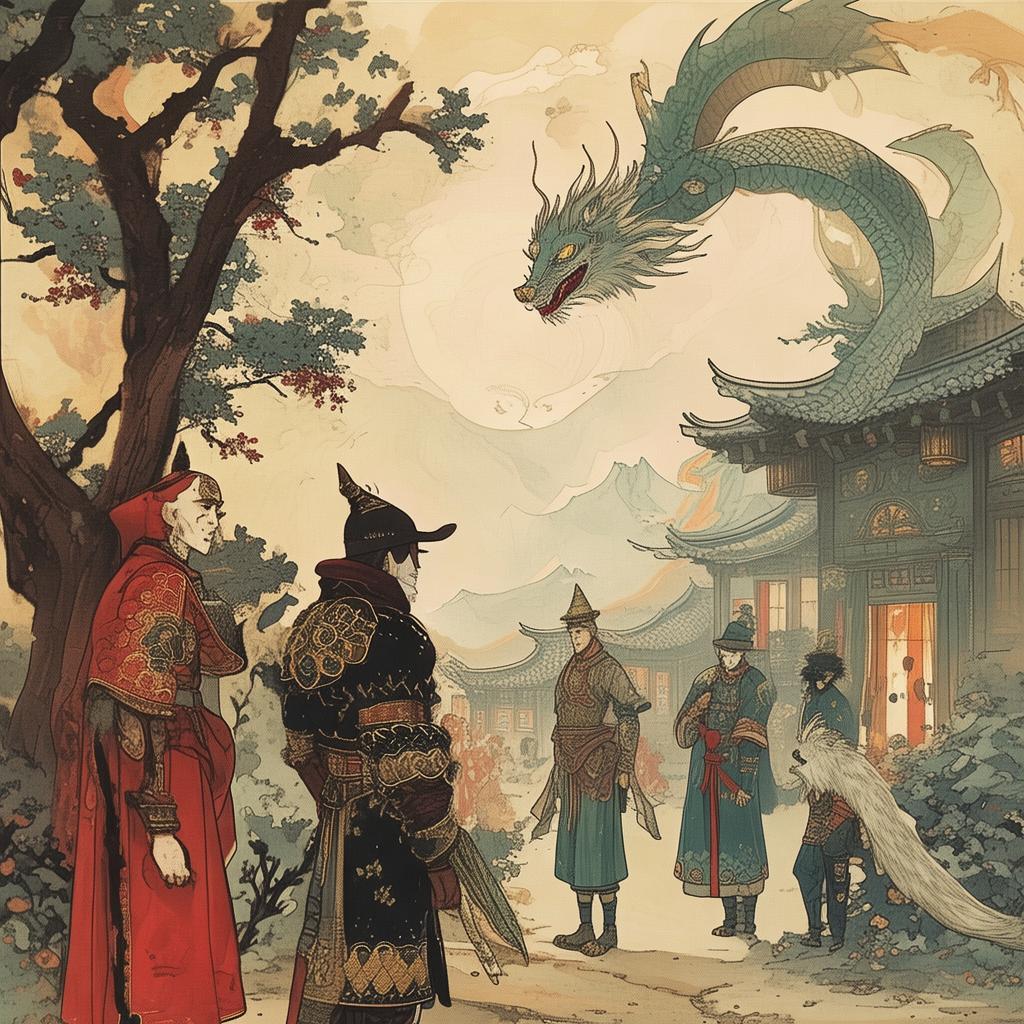The Jester's Riddle: A Royal Whodunit
In the heart of the grand castle of King Reginald the Wise, where laughter and jest were as much a part of the daily routine as the court's solemn duties, there was a figure whose presence was always a source of mirth and mystery. This was the Jester, a man of many faces and voices, whose wit could cut through the most serious of moments with a single quip.
The Jester was not just a court jester, though; he was a master of riddles and puzzles, a man whose mind was as sharp as his tongue was quick. One day, as the court gathered for the usual festivities, the Jester approached the king with a proposition.
"Your Majesty," he began, bowing low, "I have a riddle that I believe will challenge the wits of your courtiers. If any of them can solve it, I shall reward them with a year's supply of the finest wine from the royal cellars."
The king, always one for a challenge, agreed with a laugh. The Jester then presented the court with a riddle that seemed simple on the surface but held a depth that only the keenest minds could unravel.
"I speak without a mouth and hear without ears. I have no body, but I come alive with wind. What am I?"
The courtiers buzzed with excitement, each vying for the chance to be the one to solve the riddle. Hours passed, and the courtiers tried everything from "an echo" to "a windmill," but none could satisfy the Jester.
Finally, a young scribe named Elara stepped forward. Her eyes were bright with determination, and her voice steady as she recited her answer.
"I am a spirit, Your Majesty. A wind spirit, perhaps, that whispers secrets to those who listen closely."
The Jester's eyes twinkled with approval. "You are correct, Elara. But there is more to this riddle than meets the eye. The answer is not just a wind spirit, but a representation of the very court itself."
Confusion spread through the court, but the Jester continued.
"The court, like the wind, is ever-changing, ever-present, and ever-shifting. It listens to the whispers of the king and the cries of the people. It has no body, yet it is the heart of the kingdom."

Just then, a commotion erupted from the royal chambers. The king's steward rushed in, his face pale with fear.
"Your Majesty, the royal jewels have been stolen! The crown, the scepter, and the orb are all missing!"
The court was thrown into chaos. The king's face turned pale, and the Jester, who had been the source of so much amusement, now stood solemnly.
"The thief must be among us," he said, his voice low. "And the answer to the riddle will lead us to the thief."
Elara, who had solved the riddle, felt a chill run down her spine. She knew that the thief could be anyone, and the stakes were now higher than a year's supply of wine.
The Jester, with a twinkle in his eye, began to ask questions, each one designed to test the loyalty and honesty of the courtiers. Whispers spread through the crowd as the Jester's riddles became more intricate, each one leading closer to the truth.
As the night wore on, the courtiers' loyalties were tested, and friendships strained. The Jester's riddles, once a source of entertainment, now held the court in suspense, each answer bringing them closer to the truth.
Finally, the Jester's riddle led them to the steward's own quarters. There, hidden behind a tapestry, was the king's crown, the scepter, and the orb, all gleaming with the light of the torches.
The steward, caught red-handed, stammered an explanation. "Your Majesty, I did not steal them. I was protecting them from the Jester. He has been... he has been trying to turn the court against you."
The king, his face still pale, turned to the Jester. "You knew all along?"
The Jester nodded. "I knew the steward was innocent, but I needed to test the loyalty of the court. The riddles were a means to an end, and you have passed the test."
The court erupted in cheers, and the Jester was hailed as a hero. The king, grateful for the Jester's wisdom, decreed that from that day forward, the Jester would have a seat at the highest table, his wit and wisdom valued as much as the king's own.
And so, the Jester's riddle had not only solved a mystery but had also strengthened the bonds of the court, proving that even in the midst of intrigue and comedy, truth and loyalty could always shine through.
✨ Original Statement ✨
All articles published on this website (including but not limited to text, images, videos, and other content) are original or authorized for reposting and are protected by relevant laws. Without the explicit written permission of this website, no individual or organization may copy, modify, repost, or use the content for commercial purposes.
If you need to quote or cooperate, please contact this site for authorization. We reserve the right to pursue legal responsibility for any unauthorized use.
Hereby declared.









